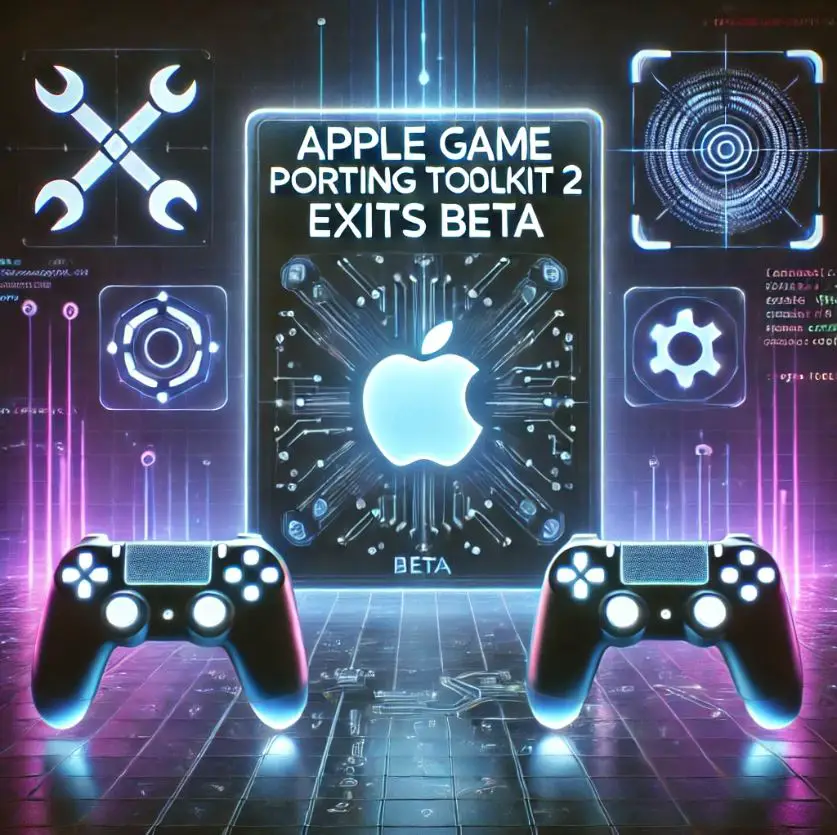
In a quiet yet significant move, Apple has taken its Game Porting Toolkit 2 out of beta. This transition marks an important milestone in Apple’s ongoing efforts to establish Mac as a viable gaming platform by easing the process of porting Windows games to macOS.
A Strategic Shift for Gaming on Mac
Historically, macOS has lagged behind in gaming compared to Windows, largely due to the challenges developers face when adapting games for Apple’s operating system. With the exit from beta, Apple’s Game Porting Toolkit 2 aims to bridge this gap by simplifying the adaptation process. The toolkit is designed to help developers convert Windows-based games to run seamlessly on macOS, thereby expanding the library of available titles for Mac users. This strategic shift could potentially attract a new wave of gamers to the Mac ecosystem while also encouraging more developers to consider macOS as a viable platform for their projects.
Streamlined Porting Process
The toolkit provides developers with an array of tools and resources that automate many aspects of the porting process. By handling routine tasks such as graphics rendering adjustments, input method modifications, and system optimization, the toolkit allows developers to focus more on enhancing gameplay experiences rather than grappling with technical incompatibilities. Early adopters have praised the toolkit for its user-friendly interface and the significant reduction in time and effort required to adapt their games for macOS. This streamlined process is expected to not only boost the number of available games on Mac but also improve the overall quality of the ported titles.
Enhanced Performance and User Experience
Apple’s commitment to high performance and user experience is evident in the enhancements bundled with the Game Porting Toolkit 2. The exit from beta suggests that Apple has thoroughly tested the toolkit’s capabilities and is confident in its stability and efficiency. Developers can now expect improved compatibility with macOS’s hardware and software optimizations, ensuring that ported games deliver smooth gameplay and high-resolution graphics. This move is a clear indication that Apple is serious about elevating the Mac gaming experience, an effort that could lead to significant growth in the gaming sector on macOS.
Developer and Industry Reactions
The gaming community and industry experts have welcomed the exit from beta as a positive development. Many see it as a necessary step to level the playing field between Windows and Mac gaming. Developers have expressed optimism that the toolkit will open up new opportunities for creative game design and innovation. By making it easier to port games, Apple is likely to see an increase in the number of high-quality titles available on its platform, which could, in turn, boost consumer interest in Macs for gaming purposes. Industry analysts believe that this development may also encourage more cross-platform collaboration, leading to a more unified gaming ecosystem overall.
Future Implications for Mac Gaming
The launch of the finalized Game Porting Toolkit 2 is expected to have far-reaching implications for the future of gaming on macOS. As more developers adopt the toolkit, the Mac gaming library will likely diversify, attracting a broader range of players. Apple’s move could also set a precedent for other tech companies to enhance their gaming platforms, fostering healthy competition in the industry. Moreover, this development highlights Apple’s evolving role in the gaming world, positioning the company not just as a hardware manufacturer but as a proactive enabler of innovative gaming experiences.
In conclusion, the exit of Apple’s Game Porting Toolkit 2 from beta is a significant step toward transforming the Mac into a more competitive and attractive gaming platform. By streamlining the porting process and enhancing performance, Apple is paving the way for a richer, more diverse gaming ecosystem on macOS, potentially altering the landscape of gaming for years to come.
